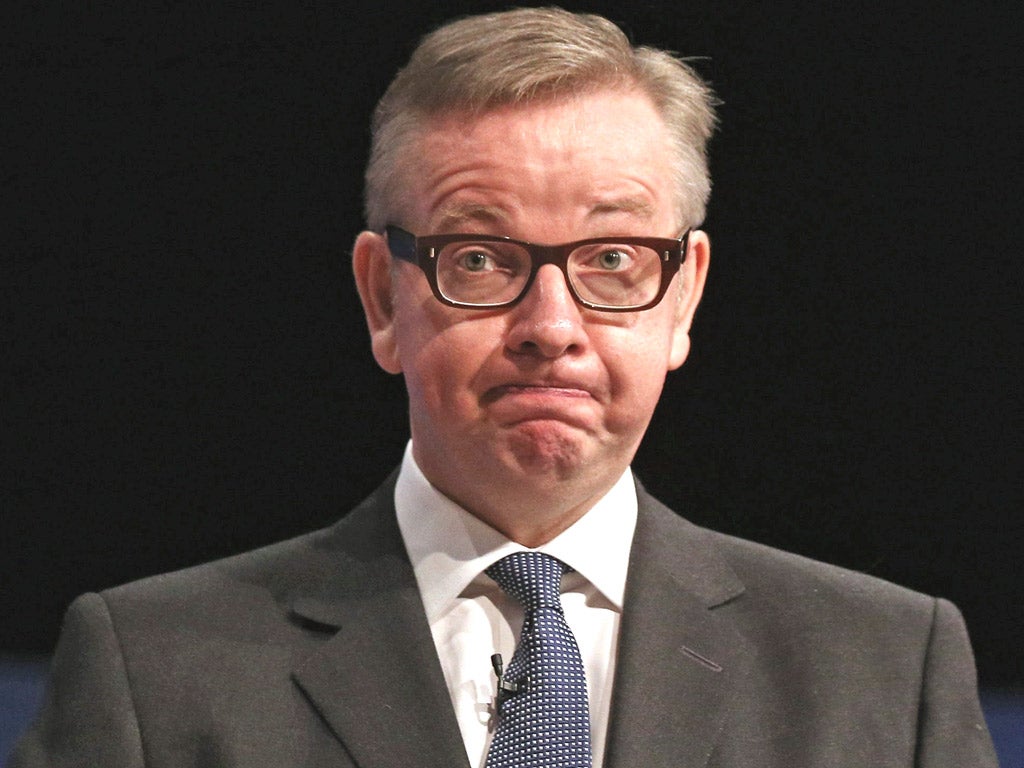‘Jingoistic and illegal’ – what teachers think of Michael Gove's national curriculum reforms
Over 100 historians claim Education Secretary’s plan ‘lacks balance and promotes political views’

Education Secretary Michael Gove is flouting the law over his plans to revamp the national curriculum, a group of history teachers will warn tomorrow.
In a letter to The Independent signed by more than 100 teachers from a variety of schools - including independent, grammar and comprehensive, they claim the draft plan are a breach of their legal duty to avoid “the promotion of partisan political views in the teaching of any subject in the school”.
The draft proposals place an emphasis of “how Britain influenced the world” and say five to seven-year-olds should be “taught about the concept and of a nation's history”.
The bias, they add, “is also evident in more subtle ways such as its handling of slavery... which is listed (in the document) as 'the slave trade and the abolition of slavery', implicitly giving equal weight to the two.”
However, the history teachers have been more incensed by what they perceive to be the “jingoistic” way Mr Gove and Prime Minister David Cameron have promoted their plans. In a speech Mr Cameron talked of teaching about “our island story in all its glory” while Mr Gove spoke of portraying Britain as “a beacon of liberty for others to emulate”.
Katherine Edwards, one of the signatories, said: “The rhetoric has been extremely bellicose.
”I think pupils will feel switched off by history if these proposals go through - partly because they will feel they are having a particular agenda forced on them.
“The proposals are very dry and certain sections of the community will feel excluded - ethnic minority groups and girls even.”
The signatories include author and retired history teacher John Clare and Oxford University porofessor of history Robert Evans.
The letter says the proposals fall “fall well short of the requirement to be 'balanced and broadly based' set out in the Education Act of 2002.
The proposals have already been attacked by many eminent historians such as Simon Schama, who acted as an adviser the the Government on the national curriculum. He called the final draft ”insulting and offensive“ in remarks at the recent Hay Literary Festival said it was like ”1066 and all that - but without the jokes“.
He said the proposals were too focussed on white males with too much emphasis on how Britain had influenced the world. In particular he singled out the inclusion of Clive of India, who established the supremacy of the East India company in 18th century Bengal and whom he described as a ”sociopathic, corrupt thug“ who made ”our dodgy bankers look like a combination of Mary Poppins and Jesus Christ“.
In their letter, the teachers describe the inclusion of individual such as Mary Seacole, the black nurse in the Crimean War who was included after a campaign by historians, as having ”rightly been described as a garnishing of tokenism by... Professor Schama“ .
They say the Department for Education ”has not made a serious attempt to refute or address the charge of political bias“ and that Mr Gove has branded his critics ”Marxists“ and ”Lefties“.
”We therefore consider that there are strong grounds for believing that this curriculum, should it be implemented and any further changes to the history of teaching which seek to impose a political bias or flout the requirement for breadth and balance, would be unlawful,“ they conclude.
A spokeswoman for the Department for Education added: “It is absolutely absurd to claim that teaching the history of Britain is illegal or politically biased.”
Mr Gove, in a recent speech to state schools heads, did indicate he was reviewing the proposals and that the final draft would include a commitment to studying elements of foreign history in detail. This week's review of the GCSE syllabus gives a commitment to spending 40 per cent of time on British history and 25 per cent on overseas.
Video: Education minister David Laws on not 'writing off' pupils
Join our commenting forum
Join thought-provoking conversations, follow other Independent readers and see their replies
Comments